Carnage as thousands of walkie-talkies explode
The second covert attack in as many days, reportedly carried out by Israel, has left the Middle East on the brink of all-out war.
A second wave of explosions in Hezbollah strongholds across Lebanon has left at least 20 people dead and 450 more injured, further stoking fears of an all-out war in the region.
Hezbollah, a political party and paramilitary organisation, is classified as a terrorist group by a long list of countries, including Australia.
Today’s attack on its members, in which walkie-talkies carried by them blew up, came a day after the first wave of explosions, which targeted the militants’ paging devices.
The exploding pagers killed 12 people, including two children, and wounded 2800 others.
Israel is presumed to be responsible for both attacks. Though it has not officially claimed credit, there is little doubt among its adversaries, or indeed its allies, that the twin operations bear the hallmarks of the Israeli intelligence agency, Mossad.
In today’s attack, thousands of walkie-talkies exploded in the Lebanese capital, Beirut, and state media reports there were also widespread blasts in the south and east of the country.
Solar energy systems also exploded in Beirut and southern Lebanon, with officials claiming civilians had been killed.
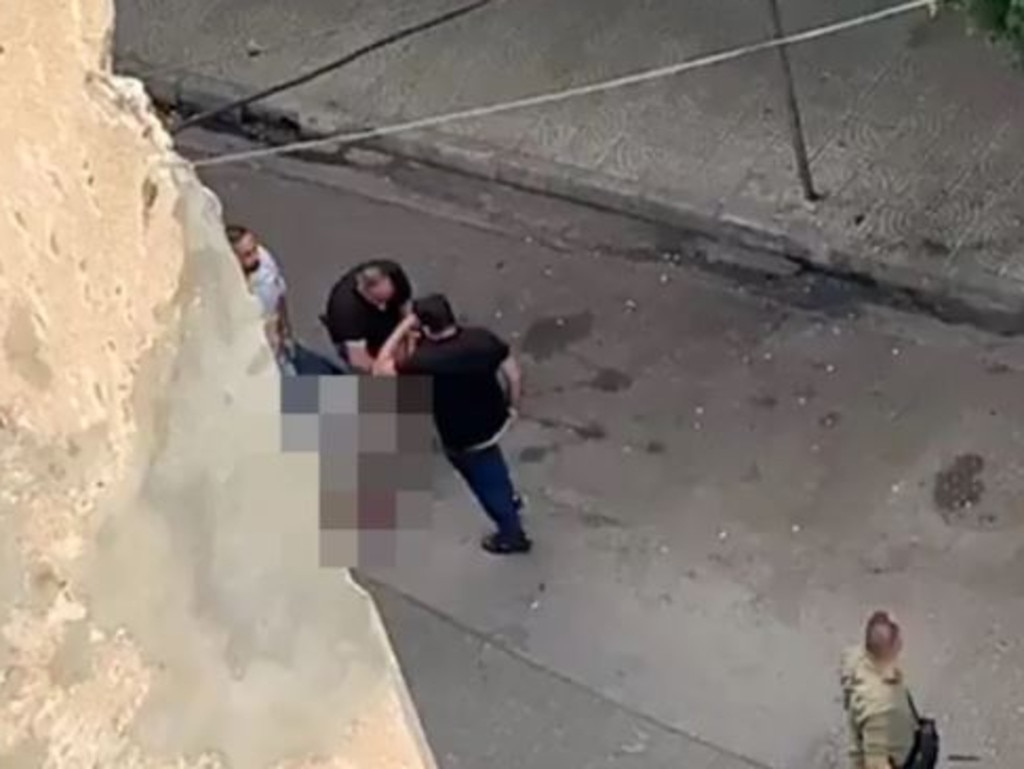
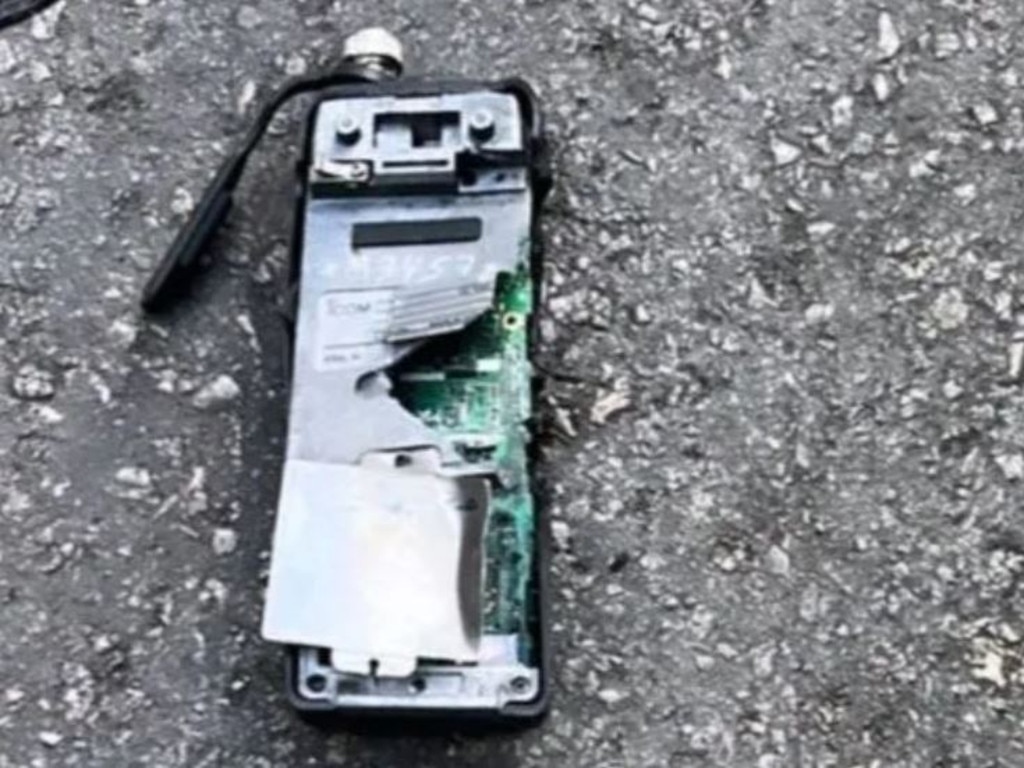
Dramatic footage showed people running for cover when an explosion went off during a funeral in south Beirut for Hezbollah militants who had been killed in the first wave of explosions.
Panicking Hezbollah fighters were seen tearing the batteries from their walkie-talkies and tossing them into a pile on the ground as ambulances raced to the scene.
In some of the footage, the brand name Icom, which belongs to a Japanese company, is visible on the destroyed devices.
Icom told The Associated Press it could “guarantee” the walkie-talkies in question were not its products. It said the model in question was discontinued long ago, and the handheld radios here were likely knockoffs.
‘Heinous crime’: Iran promises to retaliate
Iran, which backs Hezbollah, has threatened to retaliate against Israel.
“Undoubtedly, the Israeli regime bears full responsibility for such perpetration of such horrific crimes,” Iran’s ambassador to the United Nations, Amir Iravani, said.
“The Islamic Republic of Iran will duly follow up on the attack against its ambassador in Lebanon, and reserves its rights under international law to take required measures deemed necessary to respond to such a heinous crime and violation.”
The Iranian ambassador to Lebanon, Mojtaba Amani, was among those injured by the exploding pagers.
The United States reacted to the new wave of explosions by warning all sides against further “escalation” in the Middle East.
“We still don’t want to see an escalation of any kind. We don’t believe that the way to solve where we’re at in this crisis is by additional military operations at all,” White House National Security Council spokesman John Kirby told reporters.
“We still believe that the best way to prevent escalation, to prevent another front from opening up in Lebanon, is through diplomacy.”
Asked whetherIsrael was adhering to international humanitarian law with its attacks via pagers and walkie-talkies, Mr Kirby replied: “As we have said from the very beginning, Israel has a right to defend itself.”
“How they do so matters to us, and we don’t shy away from having those kinds of conversations with the Israelis as appropriate,” he added, though without actually confirming Israel was responsible.
As for the United States, Kirby echoed previous statements denying its involvement: “We were not involved in yesterday’s incidents or today’s in any way.”
‘New phase of war’: Israel moves north
“The centre of gravity is moving northward,” Israeli Defence Minister Yoav Gallant said during a visit to an air base on Wednesday.
“I believe that we are at the onset of a new phase in this war, and we need to adapt,” Gallant said.
“We will need consistency over time, this war requires great courage, determination, and perseverance.”
He said Israel’s goals in the north were “clear and simple: to return the residents of the towns in the north to their homes safely.”
“We have not forgotten the hostages and we have not forgotten our tasks in the south. This is our duty and we are performing it at the same time,” Gallant added.
Israeli officials have remained tight-lipped about the explosions which led the television news bulletins and dominated newspaper headlines.
Amos Harel of the left-leaning Haaretz newspaper said the pager and walkie-talkie blasts had put “Israel and Hezbollah on the brink of all-out war”.
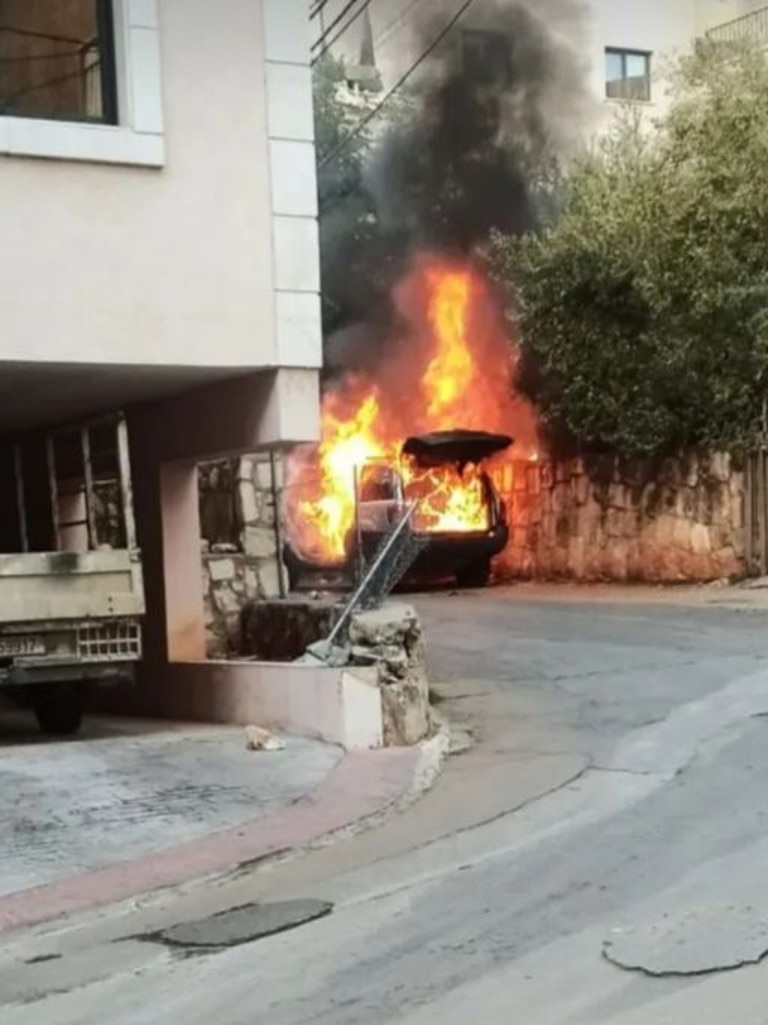
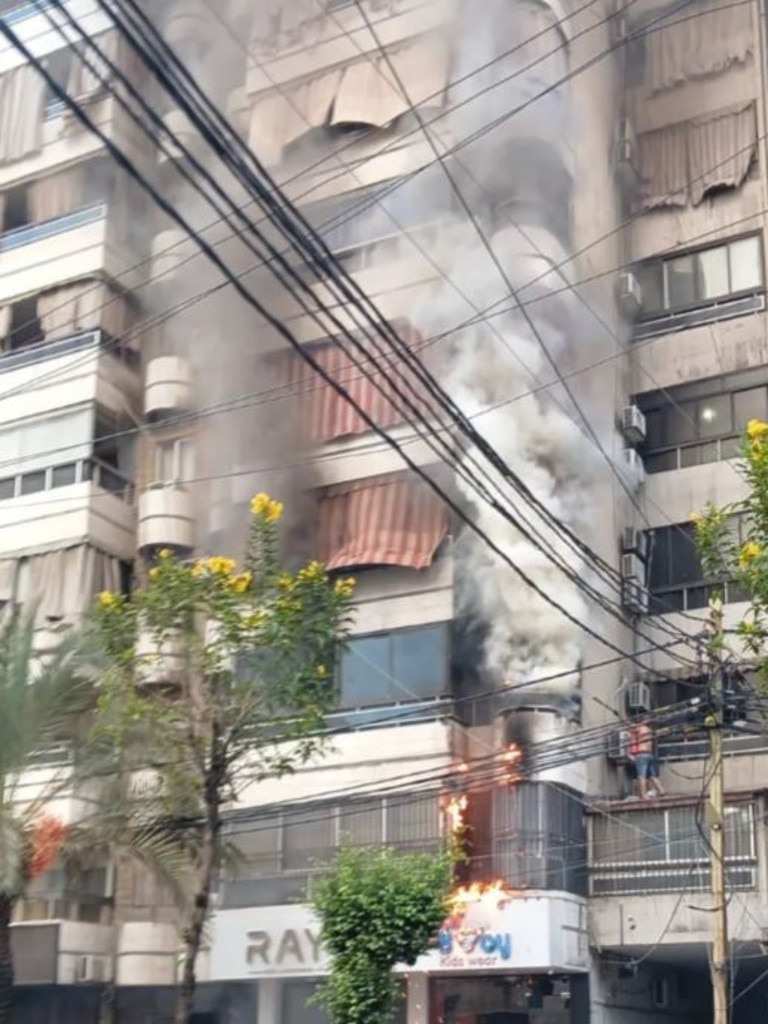
Relentless cross-border fire
The Iran-backed Hezbollah has traded near-daily cross-border fire with Israeli forces since Hamas and other Palestinian militants attacked Israel on October 7, sparking the war in Gaza.
On Wednesday, Hezbollah said Israel was “fully responsible for this criminal aggression” and reiterated it would avenge the latest attack, while vowing to continue its fight against Israel in support of Hamas in Gaza.
Cross-border exchanges with Israeli forces were “ongoing and separate from the difficult reckoning that the criminal enemy must await for its massacre,” Hezbollah said.
Lebanese Foreign Minister Abdallah Bou Habib warned the “blatant assault on Lebanon’s sovereignty and security” was a dangerous development that could “signal a wider war”.
The influx of so many casualties all at once overwhelmed hospitals in Hezbollah strongholds.
At a Beirut hospital, doctor Joelle Khadra said “the injuries were mainly to the eyes and hands, with finger amputations, shrapnel in the eyes - some people lost their sight.”
A doctor at another Beirut hospital, requesting anonymity because he was not authorised to speak to the media, said he had worked through the night and that the injuries were “out of this world ... never seen anything like it”.
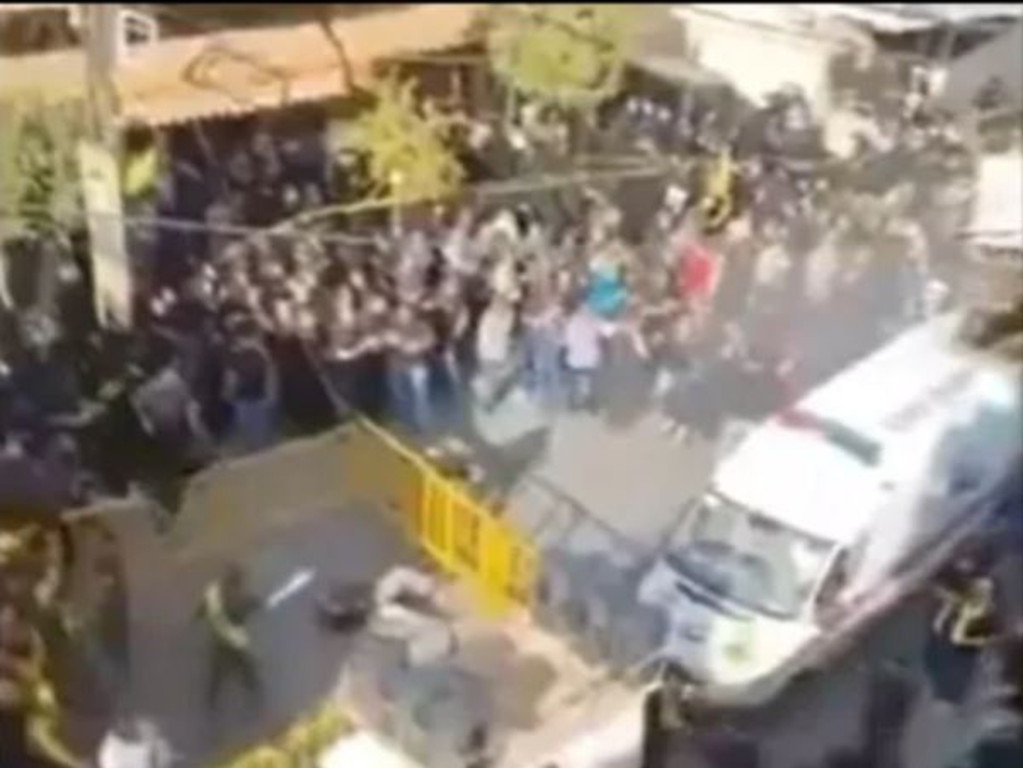
How ‘Mossad infiltrated the supply chain’
Experts claimed Israeli operatives had likely planted explosives on the paging devices before they were delivered to Hezbollah.
“This was more than lithium batteries being forced into override,” said Charles Lister of the Middle East Institute.
“A small plastic explosive was almost certainly concealed alongside the battery, for remote detonation via a call or page,” the analyst said, adding Israel’s spy agency “Mossad infiltrated the supply chain”.
Among the dead was the 10-year-old daughter of a Hezbollah member, killed in east Lebanon’s Bekaa Valley when her father’s pager exploded, the family and a source close to the group said.
Tehran’s ambassador in Beirut, Mojataba Amani, who was injured, said on social media platform X that it was “a source of pride for me that my blood was mixed with that of the wounded Lebanese” in what he called a “horrific terrorist crime”.
Iran’s President Masoud Pezeshkian condemned the attack, decrying Western support for Israeli “crimes, killings and indiscriminate assassinations”.
The attack dealt a heavy blow to the militant group, which already had concerns about the security of its communications after losing several key commanders to targeted air strikes in recent months.
A source close to Hezbollah, asking not to be identified, told AFP the pagers were “recently imported” and appeared to have been “sabotaged at source”.
After The New York Times reported the pagers had been ordered from Taiwanese manufacturer Gold Apollo, the company said they had been produced by its Hungarian partner BAC Consulting KFT.
A government spokesman in Budapest said the company was “a trading intermediary, with no manufacturing or operational site in Hungary”.
As fears again surged of a regional conflagration nearly a year into the Gaza war, Lufthansa and Air France announced the suspension of flights to Tel Aviv, Tehran and Beirut until Thursday.
Senior diplomats to meet in Paris
Senior diplomats from the United States, Britain, Germany, France and Italy will meet on Thursday in Paris to discuss the spiralling tensions in the Middle East.
The meeting will take place as fears grow of an all-out war engulfing the region, with conflict raging in Gaza and after two days of exploding pagers and other devices in Lebanon.
US Secretary of State Antony Blinken will join his counterparts from Washington’s allies in the French capital after discussing the possibility of a Gaza war truce in Cairo.
During his visit, aimed at salvaging stalled negotiations mediated by Egypt, Qatar and the United States to end the conflict, he said a ceasefire in Gaza would be the best way to stop violence from spreading across the Middle East.
Italian Foreign Minister Antonio Tajani, who said he will attend, added that the group would also discuss the war in Ukraine
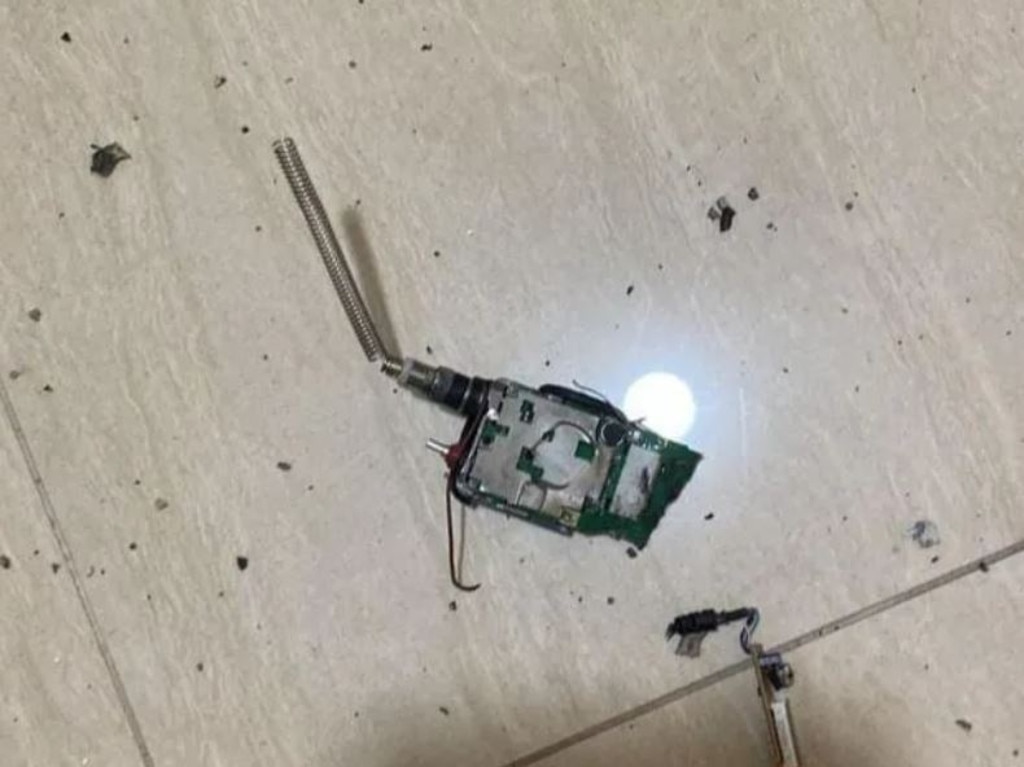
Fears latest explosions could trigger ‘all-out war’
Since October, the relentless exchanges of fire between Israeli troops and Hezbollah have killed hundreds of mostly fighters in Lebanon, and dozens including soldiers on the Israeli side.
They have also forced tens of thousands of people on both sides of the border to flee their homes.
United Nations rights chief Volker Turk said Tuesday’s attack had come at an “extremely volatile time”, calling the blasts “shocking” and their impact on civilians “unacceptable”.
UN Secretary-General Antonio Guterres urged governments “not to weaponise civilian objects”.
US officials have expressed increasing frustration with Israel, which has rejected American assessments that a deal is nearly complete and insisted on an Israeli military presence on the Egypt-Gaza border.
The October 7 attack that sparked the war resulted in the deaths of 1,205 people, mostly civilians, on the Israeli side, according to an AFP tally based on official Israeli figures which includes hostages killed in captivity.
Out of 251 hostages seized by militants, 97 are still held in Gaza, including 33 the Israeli military says are dead.
Israel’s retaliatory military offensive has killed at least 41,272 people in Gaza, most of them civilians, according to data provided by the Hamas-run territory’s health ministry.
- With AFP




